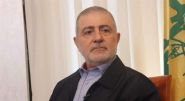
Israeli Merkava tanks crossed Wadi Hujair near Marjeyoun on Thursday morning, conducting a large-scale sweep of nearby forests with heavy machine guns.
In response, the Lebanese army blocked the road leading into the valley.
The municipality of Majdel Selm issued a statement urging residents to avoid the Slouqi-Wadi Hujair to Nabatiye road and other routes in Qabrikha (Marjeyoun), citing deteriorating security conditions.
As Israeli drones flew at low altitude over Bint Jbeil, machine gunfire was observed from Israeli positions in Maroun al-Ras.
Additionally, the disappearance of Lebanese worker Houssam Fawaz, employed at the Indonesian peacekeeping contingent’s headquarters in Adchit, was reported.
Contact with him was lost after he left his village of Tibnine via Wadi Hujair, coinciding with the advance of Israeli forces in the area.
Following an Israeli incursion in Qantara (Marjayoun), many residents fled to the neighboring village of Ghandouriye.
Lebanese army patrols and United Nations Interim Force in Lebanon (UNIFIL) units, along with an ambulance, were dispatched to the scene.
Caretaker Minister of Labor Moustafa Bayram took to social media, calling the developments a “historic lesson.”
He argued that “a solution must necessarily go through the axis of resistance, and any other approach will be a catastrophic failure,” fueling further tensions around the ceasefire agreement established on November 27.
For his part, caretaker Minister of Public Works and Transport Ali Hamiye reiterated that all essential public services, including Beirut’s international airport and land and sea crossings, remain under state control.
He commended the Lebanese army and security forces for their efforts in managing the crossings in line with national law.
Israeli Warnings Heighten Fears of Ceasefire Collapse
Israeli media reports suggest that the ceasefire agreement is on the verge of collapse, raising fears of a potential escalation in the region.
According to Haaretz, “The Israeli army plans to remain in the Lebanese border villages if the Lebanese army is unable to assert full control over the south of the country.”
This would involve setting up military infrastructure along the border and constructing a barrier south of the border.
These Israeli warnings suggest that the ceasefire, due to “expire” on January 27, 2024, may falter.
This raises the question: What more can US envoy Amos Hochstein, who is expected to visit Lebanon soon, do to prevent further escalation?
Hochstein’s Visit to Beirut
Although the exact date of his visit remains unclear, some reports suggest Amos Hochstein may visit Lebanon between Christmas and New Year’s, while others believe he may wait until after the holiday period.
According to Asharq al-Awsat, citing “parliamentary sources,” Hochstein’s trip will focus on overseeing the work of the monitoring committee responsible for ensuring the ceasefire agreement’s implementation and preventing violations.
He is also expected to lead a meeting at UNIFIL’s headquarters in Naqoura to assess the situation in the south and address Lebanon’s complaints over Israeli violations.
Lebanon has already raised concerns about Israeli operations with the United Nations Security Council and the monitoring committee.
The Lebanese government has also expressed worries about Israeli intentions, especially with the upcoming deadline for the full withdrawal of Israeli forces from Lebanese border areas, including the western coastal sector.



Comments